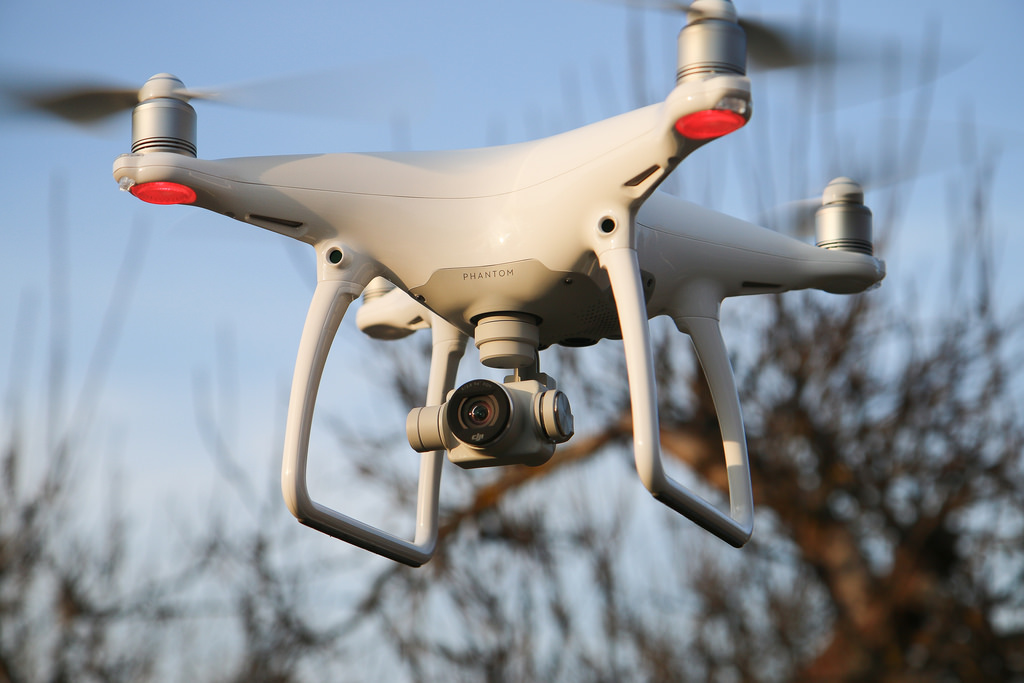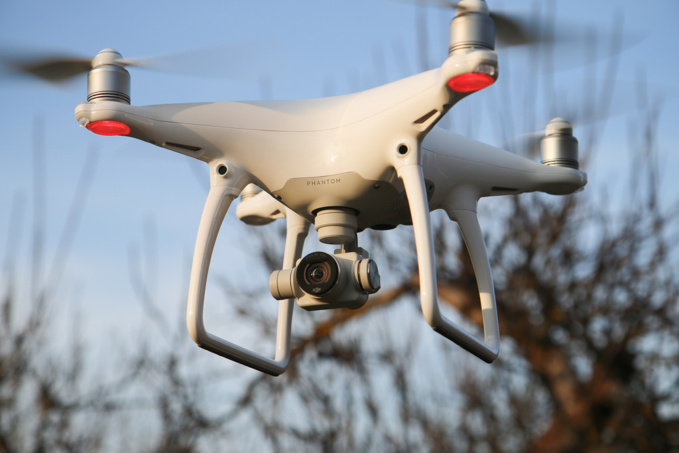According to information of Wall Street Journal, Verizon may soon offer a new billing plans for owners of drones. According to the publication, the line of tariff plans will start with 1 GB of data for $ 25 per month.
Verizon has been working on technologies to use the provider’s wireless networks to control flying drones since 2014. This year, the company has successfully probed 17-foot high with unmanned aircraft in its 4G LTE network operating area. Verizon said that this technology can be used, for example, to monitor pipelines or power lines.
"These latest tests demonstrated how modern technology, combined with wireless networks, can help improve security and protection, - said Vice President of Network Management at Verizon Mike Haberman. - Reliable nationwide 4G LTE network is a basis to create mobile wireless Internet of Things in the future."
Meanwhile, Verizon’s Chinese counterpart China Mobile and Swedish company Ericsson teamed up on a project, called the world's first field test of a 5G-drone.
The two companies took up the project even despite the fact that ratification of standards related to 5G is not expected until 2018.
The test conducted by the network operator in Jiangsu Province (China) showed that the drone can be controlled from several hundred networks that simultaneously used for normal household mobile telephony. This demonstrates capabilities of the technology and performance in real-world conditions.
The companies have been working together since beginning of the current year within Chinese national project for development of key 5G technologies. One of the project’s goals is to reduce transmission delay time in critical and emergency situations, particularly in areas of catastrophes and disasters.
Ericsson said in a statement from that the drone test is an important step on to expand the 5G coverage, in which part of the network can be started dynamically on a cellular basis to reduce delays.
Usually, a drone is controlled in flight directly through a controller in the owner's hands. One of the possible causes that hinder change in this technology is federal rules for use of drones, indicating that they have to fly exclusively in the line of the operator’s sight.
According to research of Allied Market Research, the market of unmanned aerial photographs will grow not less than 12.9% over the next six years. The United States is now leading in this field. However, the Asia-Pacific region shows the best dynamics of growth, says Digital Trends.
The researchers are sure that development of the industry may be prevented only by government restrictions. For example, the United States has recently adopted a package of laws regulating use of drones. Now, one is allowed to operate a drone only after passing special tests of the US Federal Aviation Administration.
Employees of the administration, by contrast, believe that the new rules will only increase number of registered drones. Earlier, only licensed aviation pilots are permitted to operate a drone, yet now the license is available to anyone who have passed the appropriate tests.
Ironically, the public sector nowadays is a leader in use of drones for aerial photography, and its share is expected to grow annually by about 10.9%. The study's authors attribute this to the fact that drones are already widely used in security, urban planning, as well as elimination of consequences of natural disasters.
source: wsj.com, digitaltrends.com
Verizon has been working on technologies to use the provider’s wireless networks to control flying drones since 2014. This year, the company has successfully probed 17-foot high with unmanned aircraft in its 4G LTE network operating area. Verizon said that this technology can be used, for example, to monitor pipelines or power lines.
"These latest tests demonstrated how modern technology, combined with wireless networks, can help improve security and protection, - said Vice President of Network Management at Verizon Mike Haberman. - Reliable nationwide 4G LTE network is a basis to create mobile wireless Internet of Things in the future."
Meanwhile, Verizon’s Chinese counterpart China Mobile and Swedish company Ericsson teamed up on a project, called the world's first field test of a 5G-drone.
The two companies took up the project even despite the fact that ratification of standards related to 5G is not expected until 2018.
The test conducted by the network operator in Jiangsu Province (China) showed that the drone can be controlled from several hundred networks that simultaneously used for normal household mobile telephony. This demonstrates capabilities of the technology and performance in real-world conditions.
The companies have been working together since beginning of the current year within Chinese national project for development of key 5G technologies. One of the project’s goals is to reduce transmission delay time in critical and emergency situations, particularly in areas of catastrophes and disasters.
Ericsson said in a statement from that the drone test is an important step on to expand the 5G coverage, in which part of the network can be started dynamically on a cellular basis to reduce delays.
Usually, a drone is controlled in flight directly through a controller in the owner's hands. One of the possible causes that hinder change in this technology is federal rules for use of drones, indicating that they have to fly exclusively in the line of the operator’s sight.
According to research of Allied Market Research, the market of unmanned aerial photographs will grow not less than 12.9% over the next six years. The United States is now leading in this field. However, the Asia-Pacific region shows the best dynamics of growth, says Digital Trends.
The researchers are sure that development of the industry may be prevented only by government restrictions. For example, the United States has recently adopted a package of laws regulating use of drones. Now, one is allowed to operate a drone only after passing special tests of the US Federal Aviation Administration.
Employees of the administration, by contrast, believe that the new rules will only increase number of registered drones. Earlier, only licensed aviation pilots are permitted to operate a drone, yet now the license is available to anyone who have passed the appropriate tests.
Ironically, the public sector nowadays is a leader in use of drones for aerial photography, and its share is expected to grow annually by about 10.9%. The study's authors attribute this to the fact that drones are already widely used in security, urban planning, as well as elimination of consequences of natural disasters.
source: wsj.com, digitaltrends.com



















